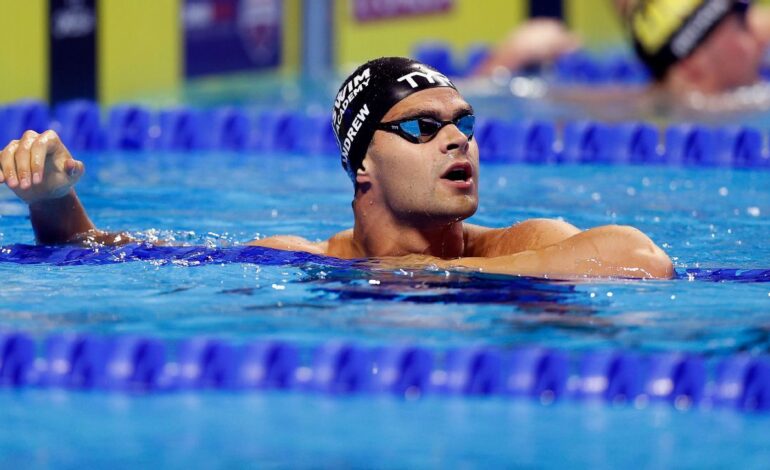Olympic Swimmers Awarded $4.6 Million Settlement Over ISL Dispute

Olympic swimmers involved in a legal challenge against the sport’s governing body will receive a settlement of $4.6 million. This fund is designated for athletes who participated in the International Swimming League (ISL) events held in Turin in 2018 and during the 2019 season. The announcement was made by World Aquatics on Monday.
The settlement comes after three prominent swimmers—Hungarian champion Katinka Hosszu and American competitors Tom Shields and Michael Andrew—filed an antitrust lawsuit in California in 2018. Their legal action was prompted by attempts from the organization then known as FINA to inhibit the operation of the ISL, which aimed to offer higher prize money to participants. Initially, the Lausanne-based governing body threatened to impose bans on swimmers who competed in the Ukraine-backed ISL events.
The ISL was established as an alternative to traditional swimming competitions, positioning itself as a more lucrative option for athletes. The existence of the ISL compelled World Aquatics to increase prize money at its own events, including world championships and World Cup meetings.
World Aquatics stated, “The settlement fund will ensure swimmers are more than fully compensated following the 2018 and 2019 ISL seasons.” The organization expressed anticipation for the court’s approval of the settlement, reflecting a commitment to rectify past grievances.
The ISL series was paused in 2022, largely due to the global consequences of the Russian military invasion of Ukraine. Husain al Musallam, president of World Aquatics, acknowledged the disappointment felt by many ISL participants, stating that numerous swimmers who committed to the league “were badly let down.” He added, “I am pleased that we are finally able to step in and provide this significant sum of money for the swimmers.”
Despite this resolution, a separate lawsuit involving the ISL remains pending, indicating ongoing legal complexities surrounding the league and its operations.
As the swimming community awaits further developments, this settlement marks a pivotal moment for the athletes who sought to challenge the governance of their sport and advocate for better financial support and opportunities.






